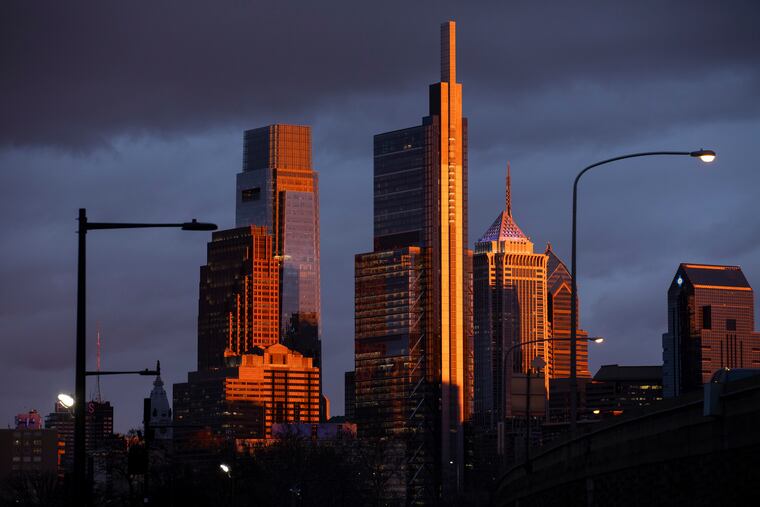
While Philadelphia may be the No. 1 city in our hearts, it’s actually the 33rd best. At least according to a newly released study from economic forecasting firm Oxford Economics.
Dubbed the Global Cities Index, the inaugural study ranks the 1,000 largest cities globally based on several weighted categories.
And you know what they say: 33 out of 1,000 ain’t bad. Still, Philly ranked far behind first-place New York City, and was below Boston (11th), Washington (13th), and Chicago (29th).
Here is what you need to know about how Philly fared in Oxford Economics’ index:
What is the Global Cities Index?
Oxford Economics calls its Global Cities Index a “holistic assessment” of the 1,000 largest cities in the world. It is meant to provide a “consistent framework for assessing the strengths and weaknesses” of those cities, said Mark Britton, Oxford Economics’ director of city services.
“When coupled with our forecasts, it enables organizations and policymakers to make more informed strategic decisions,” Britton said.
Oxford Economics looked at five broad categories to create the rankings: economics, human capital, quality of life, environment, and governance. Each category consists of several measures. The quality of life category, for example, looks at life expectancy, income per person, and recreation and cultural sites.
Those categories are then combined into a weighted average, with more consideration going to economic factors. The final overall score for each city determines its ranking.
How did Philly do?
Philadelphia had a number of strengths, Oxford Economics found. Among them was the city’s large GDP at about $545 billion, the number of universities in the area, and the region’s relatively high income per person at about $87,300, according to the index.
Weaknesses, however, came in the form of less economic diversity, lower income equality, and more natural disasters in comparison with other cities on the list.
Among the individual categories, Philadelphia’s economic ranking was highest, taking 18th place overall.
“While Philadelphia has a less diverse industry mix than other top cities, it performs well on economic stability with its key sectors providing consistent GDP growth,” Oxford Economics said. “Consequently, it comes as little surprise that the city secures a position in the top 20 in the economics category.”
Quality of life, meanwhile, was fairly middle of the pack, with Philly taking 250th place in the category (hey, at least we beat New York on this one, with that city taking 278th). Factors such as a “relatively affordable housing market” and plenty of recreation and cultural facilities were helpful.
But our performance was limited by higher economic inequality, with many residents earning low incomes, even though income per person for the area is relatively high. And our life expectancy is also relatively low, with Philly falling “in the bottom half” of all 1,000 cities studied.
But by far, Philadelphia fared the worst in the environment category, taking 355th place overall. That put us below other similar cities and was mostly attributed to the city’s “significant industrial base affecting its air quality,” Oxford Economics found. The Philadelphia area, the index said, is also “more prone to natural disasters” than other high-ranking cities, as well as “more susceptible to temperature anomalies.”
Who beat us?
The top 50 cities on the international list were largely in North America, with New York taking the No. 1 spot. Please take a moment to boo before this next quote.
“[New York] is the economic capital of the United States, and in many ways, the world,” Oxford Economics wrote. “It is a global hub for finance, tech, advertising, media, and fashion.”
New York, in fact, is so important that even Philadelphia’s write-up in the index is, in part, defined by our proximity to the Big Apple. Philly, Oxford Economics wrote, is well-situated between New York and Washington (13th place overall), which gives us “access to other major markets,” helping to elevate our score. Sigh.
Rounding out the top five cities were London, San Jose, Tokyo, and Paris. And while the New York thing was predictable, it did hurt a little to be so far outclassed by Boston, which took 11th place. Boston, Oxford Economics wrote, is still a “global powerhouse” in terms of economics and human capital.
But, as a silver lining, we did beat the pants off San Antonio, which didn’t crack the top 100 (and, we might add, didn’t even get a write-up because of it). So, while we may barely be bigger than that Texas city these days, according to the latest U.S. Census Bureau data, at least we’re still much better.